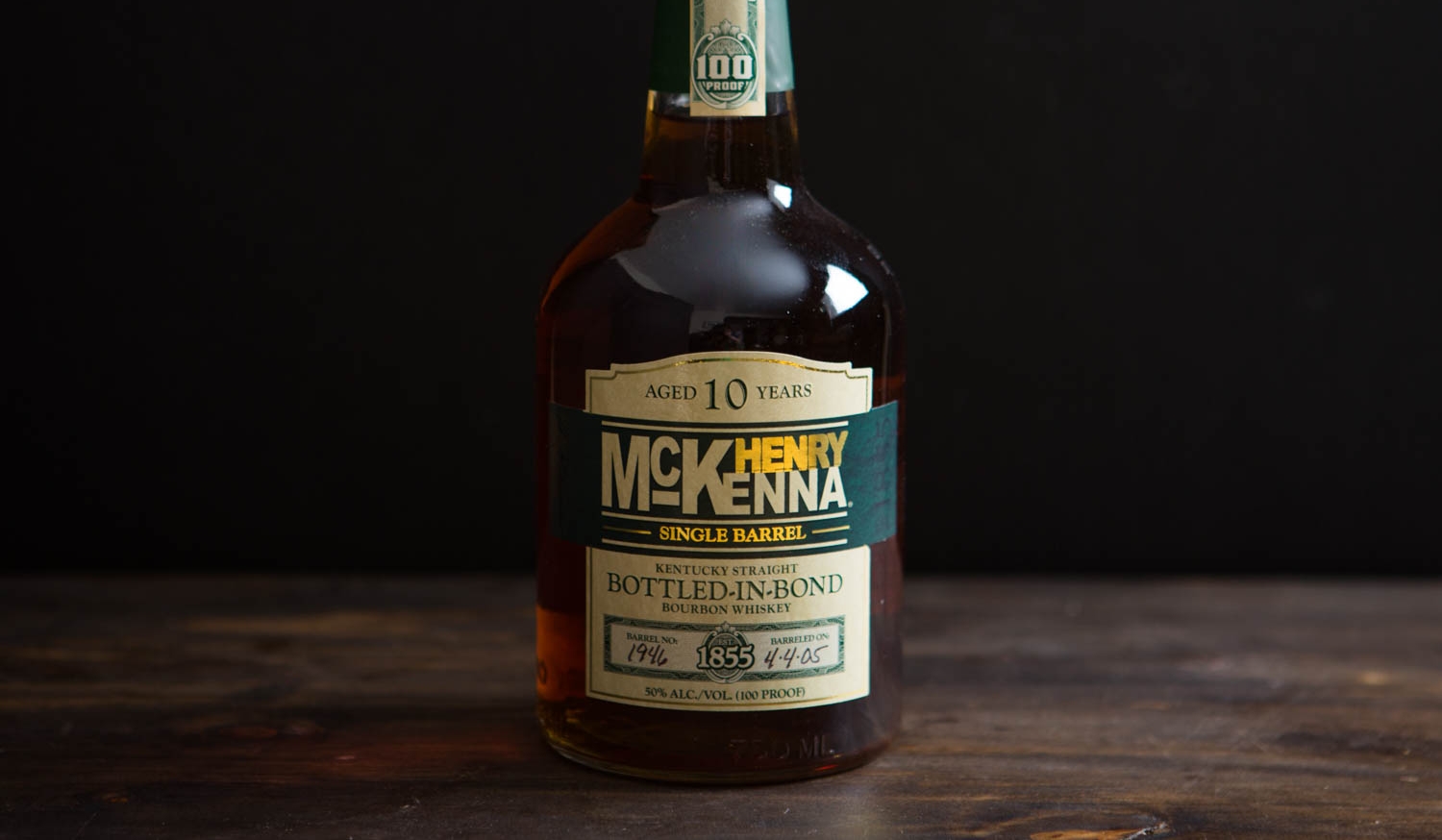
Henry McKenna
Above is an AI-enhanced image of Henry McKenna based on a sketch photo provided by Heaven Hill and based on facts known about McKenna’s life.
"Sanitation Stickler"
Henry McKenna was born in Draperstown, County Derry, Ireland, in 1819 and came to Nelson County, Kentucky, in 1838. The early 1800s were a period of exceedingly hard times in Ireland. As a youth, Henry worked where he could; in an Irish distillery, and later, he worked for a relative as a clerk in a liquor business.
When he emigrated to the United States, Henry had no plans of becoming a whiskey maker, although he was very intent on making his mark in America. Soon after arriving in Lexington, Kentucky, Henry met Elizabeth “Lizzie” McGuigan, who was also from County Derry in Ireland. They married in 1847, and the couple made their home in Nelson County, Kentucky. Like many immigrants, Henry worked for a time doing manual labor on road crews.
As often as possible, Henry made an effort to look into a less physical and better-paying job. Several years passed before Henry and Lizzie moved to Fairfield, a small town just north of today's Bardstown. It was there that, in 1855, Henry opened a flour mill. He first bought a plot of land at the edge of town, built a grain elevator and mill, and set about grinding wheat into flour for neighbors and other patrons. In those days, the gristing process yielded a great deal of waste. Because he had so much waste and nothing of consequence to do with it, Henry bought a farm and fed much of the waste to his pigs. Even then, there was excess waste, so the modest, miserly McKenna needed to find something to do with the surplus flour and grain. Being in Kentucky, he got the idea to turn the excess into wheat whiskey. He soon set up a wooden still in the back of his flour mill and began turning out about a barrel of whiskey a day. At first, Henry used only wheat to make whiskey, but eventually he turned to the most prevalent and affordable grain in the Commonwealth: corn. McKenna then began to experiment with grain and barrel char, learning all he could about the art of making true bourbon. A local newspaper account of the day stated that McKenna, his son, and a slave distilled "an over-abundant amount of very good whiskey for the quality of still he had."
By 1858, Henry had enough business from his still to hire a full-time distillery superintendent. For this job, he picked Patrick Sweeney, who, like both McKenna and his wife Lizzie, was another Irish immigrant from County Derry. By 1870, Henry, at the age of 51, was still living in Nelson County with Lizzie and their four boys: Daniel, 21; John, 20; James, 15; Stafford, 7, and a daughter named Mary, who was 11. On the U.S. census at the time, his occupation was listed as “distiller and miller.” As his family grew, he had enough income to provide them all with private educations, but he also enlisted all four boys at an early age to help him distill, planting the desire for them to observe and learn and become involved in what Henry began to see was his family’s future in Kentucky.
McKenna is known to have been a stickler for sanitation. He never simply whitewashed his fermenting tubs with lime like most of the early distillers did to save time. Instead, Henry had them scrubbed with soap, then sterilized with boiling water before reuse. According to McKenna, this process was the only way to ensure that 'wild' yeasts did not adulterate his new batch. The Louisville Courier of the time also praised McKenna as "unique among Kentucky distillers for refusing to sell his whiskey until it had been aged at least five years."
In 1880, Henry McKenna invested the capital to open a business office on Louisville’s Market Street to sell his whiskey to a broader audience. Unfortunately, he rapidly outgrew that facility and had to invest in more property, so he bought “The Old Blue House” further down Market Street, which was a famous landmark at the time. That house was featured in one of three images etched on McKenna’s ceramic whiskey jugs. Soon, to meet the production demand for his "fine whiskey," he again had to move his Louisville distillery and corporate offices. This time, Henry chose Fourth Street and Main. Unbeknownst to Henry, this area of Louisville would later be identified and known worldwide as “Whiskey Row”.
Because of the overabundance of care McKenna took to make his whiskey, it was very popular and in high demand. In 1883, he built a brand new brick distillery on Whiskey Row, which had the capacity to make three barrels a day and could operate seven days a week. Testimonials published in the newspaper from recognized sales figures indicated McKenna’s business continued to grow. A local doctor in Louisville named Dudley Reynolds, who used whiskey to treat ailments of all types at the time, was quoted as saying, “Henry McKenna’s whiskey is the purest and best I have ever seen.” By the 1890s, the Irishman’s "Old Line Sour Mash Whiskey" was being sold throughout the continental United States.
Over time, McKenna became widely recognized as one of the true patriarchs of Kentucky whiskey. In 1892, Congress introduced a bill asking for a five-year bonding time for bourbon whiskey. Although it did not pass that year, the bill was known as “The McKenna Bill”. Unfortunately, just under a year later, McKenna passed away at the age of 75. and was buried in Saint Michael’s Cemetery in Fairfield, Nelson County, near his adopted home and the distillery that had made his name famous.
McKenna had sent his two eldest sons to universities for advanced education. He had asked them to carry on the family business of distilling after he passed. So Daniel McKenna, the oldest, took over management of the distillery. He was well-suited for the job since he had worked in the business from the age of six. His brother, James McKenna, was also intricately involved in the family business and headed up the marketing and distribution of the McKenna whiskey from the Louisville office.
By today’s standards, the McKenna still production was very small. Family members have insisted that capacity never exceeded more than nine barrels a day, and even then, for only nine months of the year. It was said that Henry believed that heat was bad for the correct fermentation of the mash, and he insisted that production be ceased for three summer months of each year.
Contributed by Colonel CRaig Duncan, Columbia, Tennessee
Three versions of Henry McKenna Bourbon (from left to right): Henry McKenna Sour Mash, Henry McKenna Single Barrel 10 Year-Old Bottled-in-Bond, and Henry McKenna “Table Whiskey”.






